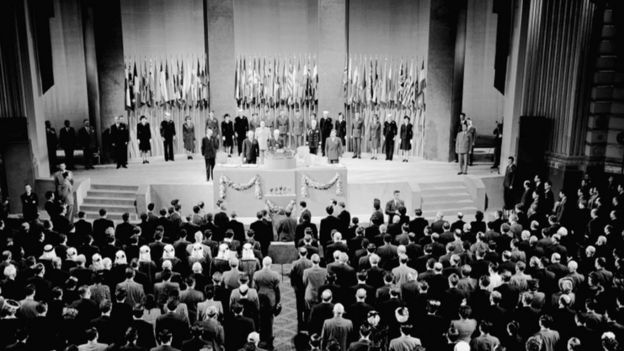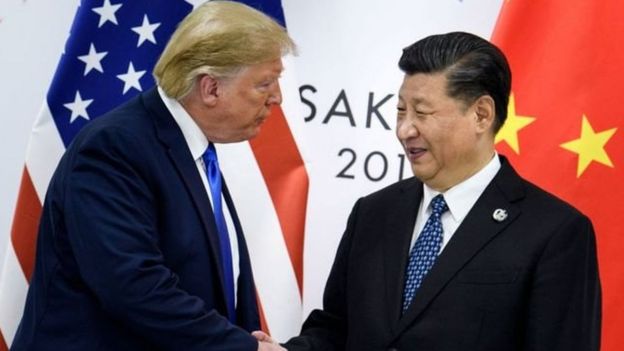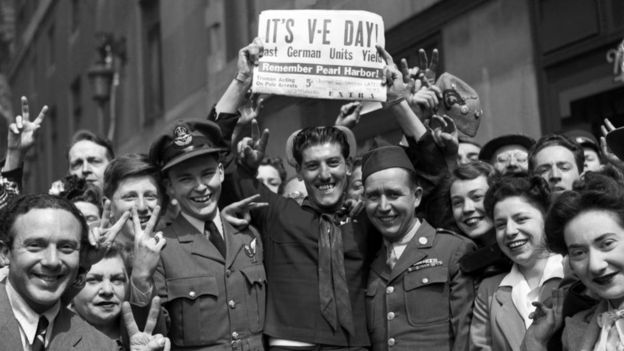 |
Victory Day May 8: What if the post-World War II 'world order' changed? |
More than anything else, it was the war that reshaped our world.
Victory in Europe, or VE Day, was clearly not the last chapter of the battle. Japan was to be completely defeated. But still it was an important milestone that was an important step towards a new kind of global order.
The United States emerged as a military superpower after the war, surpassing Moscow in the development of nuclear weapons, which has become an important symbol of the global superpower.
But Russia is not far behind. Its decision to control much of Eastern Europe has somewhat dashed expectations of a new order with less confrontation.
This gave birth to NATO and established seemingly permanent military and diplomatic relations between the United States and Western Europe. This week, journalist and historian Ann Applebaum said in a webinar on the Royal United Services Institute's website that "it gave birth to the idea of the 'West: a coalition of values that includes not only borders but also ideas." Yes. '
But it was not just NATO. As Professor Michael Clarke puts it, there was a whole network of different institutions.
According to him, "very little pre-war structure of international institutions remained. And even more than 1919, there was a conscious thought that there was a need to re-create the world order from 'debris'.
He says the founding of the United Nations played a key role, followed by Bretton Woods' economic system, the IBRD (World Bank) and the IMF. Britain had a lot of influence, but American power was decisive.
 JTN IMAGES
JTN IMAGES
Professor Michael Clarke says: "Almost all international organizations relied on American interests and support for their stability. In the 1950s and 1960s, a highly regulated international system evolved from the clutches of Western-dominated institutions. There is a lot of pressure on the order based on these rules now because its political support is changing significantly.
Because of this, it is an essential part of our daily news agenda.
This is the Rising China, the shift of economic power in Asia and the Far East, and it is a growing popular trend in many Western democracies.
Look at the obvious tensions in NATO, for example, due to President Donald Trump's questions about what matters to the United States, and the emergence of authoritarian regimes in allied countries such as Turkey and Hungary.
Journalist and historian Ann Applebaum says the Republican Party in the United States has been dominated by a one-sided approach to foreign policy. She says there are some cracks in the Western values system and generational change means that very few politicians have anything to do with the immediate post-war era.
Ignorance of today's history is another problem.
China has not emerged in recent times. He has been one of the future members of the UN Security Council since its inception.
"The United States has always been very concerned about China, both before and during the war," said Michael Clarke.
Although not much is said about it, according to Michael Clarke, "the United States has always viewed pre-communist China as a major power in the New World Order, naturally in the presence of ancient empires such as France and Britain." Will be able to bring balance.
 JTN IMAGES
JTN IMAGES
"That's why the United States was so upset when China fell to the Communists in 1949," he said. He did not recover from this tragedy until 1972, and now, perhaps because of China's role in the world, he is once again suffering from the 'Syndrome of Dislocation'.
Lawrence Friedman, a professor at King's College, agrees, but says that during the Cold War, "China had a different problem." In the 20th century, China was not considered an economic and technological threat, as it is today.
Michael Clarke says Washington's "fall" has become more symbolic of the end of post-war order. However, he acknowledged that their numbers were not enough to defeat Washington's bid for independence.
 JTN IMAGES
JTN IMAGES
"The emerging world order is based on the simple fact that more than half of the world's population now lives within a circle that could be drawn around India, China and Southeast Asia," he said.
"It drives the economic geography of the world, and it gives rise to national political power and then international political structures."
So what will change, if any, because of the Code 19 crisis?
Michael Clarke says the post-epidemic world will not be the 'Asian Century' or the century of Asia, but its effects will likely create real inconsistencies in the decades to come.
He thinks the crisis will hurt China in the long run. Because of the political backlash in tackling the issue, and also because of the emerging power and national estimates of supply chains that rely heavily on China.
It is probably too early to predict what the post-Code 19 international system will look like.
But it can be said that the public service and solidarity that emerged after World War II was also intertwined in post-war life. It is good that this feeling is still there, but unfortunately all the signs are the opposite.



No comments:
Post a Comment